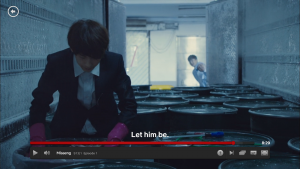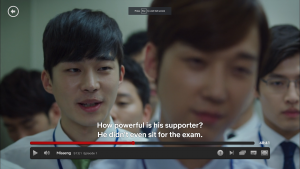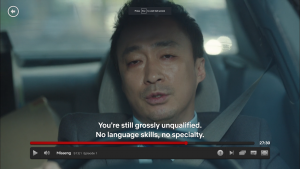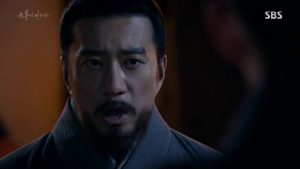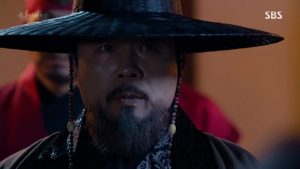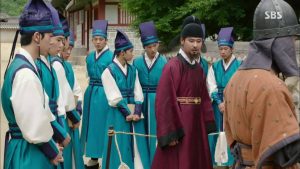Both alcohol and prostitution are enormous industries in Korea. These two industries are ingrained in the culture of South Koreans. In fact, many of the business talks involve drinking and prostitution. As seen in episode eight of Misaeng, Sales Team Three were in charge to attain a contract with a business client. In this episode, the business talk took place in an entertainment facility where alcohol was heavily used. Also, the main conflict for the protagonists is that the client expects “second round” services after the drinking finishes. Similarly, in episode nine, Sales Team Three also discusses their work in a restaurant where they are drinking alcohol. From this, viewers can understand that alcohol and prostitution are very crucial to work and business. In this essay, I will analyze the business culture of Korea in terms of their alcohol consumption and the use of prostitution such that these two activities are central to doing business.
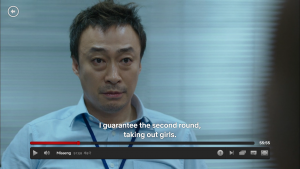
A quick summary of episode eight is that Sales Team Three are met with a client that expects “second round” services when doing business. Because of this, Sales Team Three tried very hard to get their contract signed during the “first round,” which is consuming alcohol. They want to finish in the “first round” because of Manager Oh’s ethics regarding using prostitution in business. The ninth episode talks about the arrival of Mr. Park, where he is an employee that does not fit well with Sales Team Three. This leads to a scene where Sales Team Three went to drink and discusses the problems of Mr.Park.
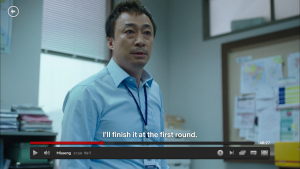
Prostitution in Korea is something that is illegal and yet, is one of the biggest working industry. As seen in the documentary, “Save My Seoul,” prostitution is ingrained in their culture. It is seen as if it is a rite of passage or something casual to do with coworkers after work. It is also a part of the hosting culture in terms of business relationship. (Lee, 2017) One sex industry consultant has spoken that “the business model [Korea] depends on… [is by] hang[ing] out at [prostitutes and hostess clubs.” (Cain, 2014) To attempt to explain this culture, I will argue that prostitution in the business aspect is a reflection of the historical kisaengs and their relationship with the upper class.
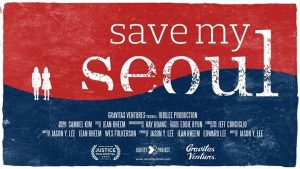
“Gisaeng[s] appeared to have originated in the early Goryeo Kingdom… [and] their main identities were as government servants. Their ‘official duties’ [are to] providing entertainment for government officials and their guests.” (Hwang, 2015) This role is very similar to the current hosting culture in Korea, where clients are expected to have the “second round” when being hosted for business. The client represents the guests while the hosts are the government officials. The same culture can be seen in the Joseon dynasty as yangbans often frequent the kisaengs. The reason is that “kisaengs offered romance and flirtation which men could not have with their restrained, Confucian wives.” (Maynes, 2012, 7) This can also be applied to contemporary Korea, where men look for a chance to be satisfied with something new that their significant other may not agree to. In Misaeng, CEO Moon reflects both of these points. He is a man that expects to be hosted with prostitution and his reasoning can be seen that he has a powerful wife behind him. The act of prostitution of CEO Moon can be understood as an escape and excitement from his dominant wife, as the wife is actually the one making all of the business decisions. Hence, the hosting culture in today’s Korea reflects on the traditional role that officials and kisaengs played.
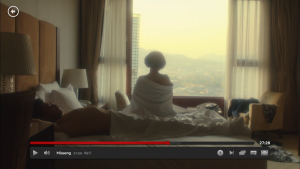
Consumption of alcohol is also vital when doing business. “The question ‘How much alcohol can you handle?’ is often part of a job interview in Korea.” (Cakar and Kim, 2015, 290) This is already a big indication on the importance of alcohol during work. In fact, many of the job applicants are tested in their alcohol tolerance and are asked to entertain during their interview. (Ibid) There are several reasons why alcohol is so important in doing business. First, “[Korea] has a drinking culture that is rooted in ‘one shot’”. (Ibid) This means that when someone is to pour a person a drink, that person must finish the drink at once. Not doing so is a sign of disrespect to the other person. Also, drinking is a way of socializing among colleagues and clients in which case “if an employee cannot drink or does not enjoy drinking, they he may end up [being excluded].” (Ibid, 294) This drinking culture is also widely approved by the corporations of Korea since much of the networking expenses “are paid from the organization’s finances.” (Ibid, 296) This shows that generally, companies accept the fact that alcohol has a place in doing business and connecting with coworkers. In terms of entertaining others, it is a skill that must be well used. Since the final goal of drinking and entertaining with clients is to sign a contract, the role of satisfying the client must be met. Doing so will yield a higher chance of completing a contract between the host and the client.
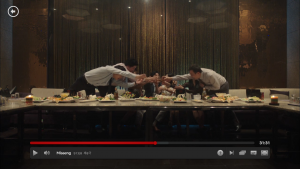
In conclusion, the role alcohol and prostitution are substantial in the work forest. Prostitution is a part of the hosting culture that has been pass down through generations. This business model cannot be changed easily. Alcohol also represents a social relationship between people. When people drink, they bond and socialize. This drinking culture is critical for trust in business relationship to be achieved. Similarly, the consumption of alcohol is high because of the drinking etiquette. When a person does not “one shot” their alcohol, it is seen as a disrespectful action. Just like the scenes in Misaeng, viewers can see the importance of prostitution and alcohol in the business world.
Bibliography
Cain, Geoffrey. “In South Korea, real business gets done in brothels and karaoke joints.” PRI (2014).
Cakar, Ulas and Haeeun Kim. “Korea’s Drinking Culture: When an Organizational Socialization Tool Threatens Workplace Well-being.” Turkish Journal of Business Ethics 8, no. 2 (2015): 289-309.
Hwang, Kyung Moon. “Life and role of gisaeng courtesans.” Korea Times (2015).
http://www.koreatimes.co.kr/www/news/nation/2016/02/633_173034.html.
Kim, Won-seok, dir. Misaeng. Number 3 Pictures, 2014.
Lee, Jason Y, dir. Save My Seoul. Jubilee Production, 2017.
http://www1.ondramanice.io/save-my-seoul/watch-save-my-seoul-episode-1-online.
Maynes, Katrina. “Korean Perception of Chastity, Gender Roles, and Libido; From Kisaengs to the Twenty First Century.” Grand Valley Journal of History 1, no. 1 (2012): 1-19.
Questions:
Why do you think that prostitution and alcohol cannot be removed in the business culture?
What suggestions do you think can protect the workers from excessive drinking in order to obtain a client? How can they be implemented?
